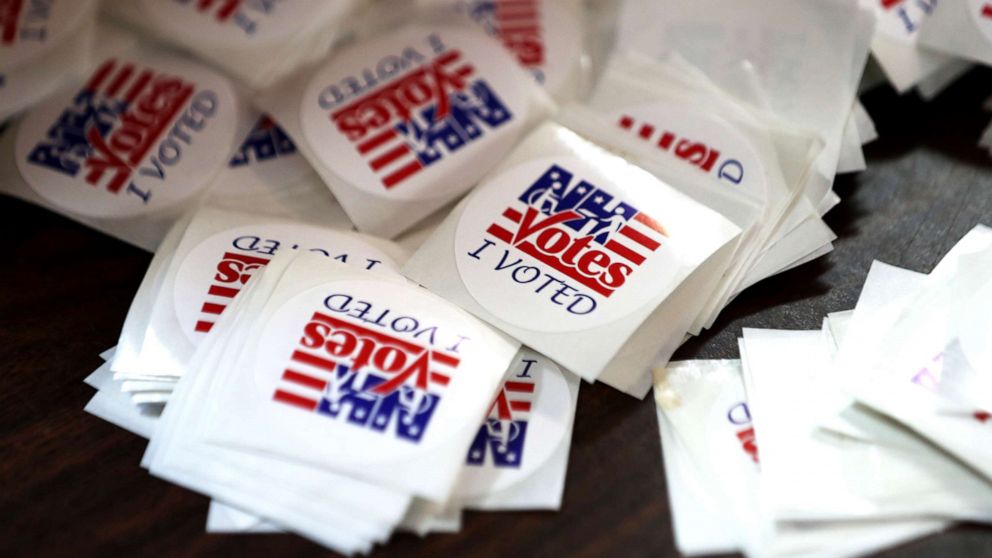The Democratic National Committee needed New Hampshire to be different. Following an unambiguously disastrous Iowa Caucus where it is still unclear who actually “won”—though it is clear that Bernie Sanders received the most votes—the New Hampshire primary needed to deliver the first authoritative result in a very long primary process. Legitimacy needed to be restored to the process after the allegations of misconduct that still haunt the Iowa Caucus and the performance of party unity that took place at the last debate needed to be confirmed. New Hampshire needed to be a spotless process. Yet it also had other roles: to see if the trends that showed themselves in Iowa would continue and to whittle down the large Democratic field.
New Hampshire succeeded at the first task. There are, as of the time of writing, no reports of malfeasance or suspicious outcomes. All candidates seem to accept the results as being legitimate and they were released in a timely manner. In this, the Democratic Party was able to save face and retain some illusion of legitimacy. They can continue to act as if Iowa was a fluke, rather than a glaring representation of how broken and undemocratic the primary process is.
In terms of bringing clarity to the race, New Hampshire is a bit of a mixed bag. On the one hand, Sanders pulled off a victory—as most polls suggested he would. His main opponent was the newly-minted establishment golden child, the surprise “winner” of Iowa: Pete Buttigieg. This was also in keeping with recent polls that showed Joe Biden’s support in New Hampshire collapsing in favor of an insurgent Buttigieg. The biggest surprises were Amy Klobuchar over-performing and how close the race ended up being. Klobuchar’s relative success came at the expense of Elizabeth Warren and Joe Biden who are not projected to receive any delegates from the primary after failing to meet the 15% support threshold necessary. While Sanders technically won, he and Buttigieg will walk away with the same number of delegates from the state.
While it would seem logical that the race for the nomination is now defined as Sanders —the candidate of the progressive wing—versus Buttigieg—the candidate of the establishment wing, there are lingering questions. Biden and his supporters continue to insist that South Carolina and Super Tuesday will give him the boost he needs and radically redirect the race. Warren is still Sanders’ main progessive opponent; however, the results of the New Hampshire primary represent another major blow to her chances. Warren needed a better showing in New Hampshire to recover from her third place finish in Iowa. The progressive wing of the party is now coalescing around Sanders, with Warren acting as a spoiler without a viable shot at the nomination—barring a massive change in circumstances.
Buttigieg’s rise is a win for the establishment. He is very popular for capitalists, has a bunch of corporate donors, does well in the debates, is young and gay, and is running as a pragmatist who can get things done. Of all the establishment candidates left, he is the one with the strongest profile—even with his lack of experience—heading into a general election. That said, it is still unclear whether the establishment has now chosen Buttigieg as their candidate or if he’s just the flavor of the month, to be discarded if Biden or Klobuchar begin to pick up steam. Indeed, Klobuchar’s over-performance would certainly indicate that there is still a meaningful divide within the establishment wing of the Democratic Party. They have not fallen into line behind Buttigieg and that could spell trouble for him in later contests.
Klobuchar and Buttigieg’s successes can also be attributed to their ability to position themselves as both centrist Democrats and outsiders. Both highlight their midwestern roots and talk generally about “getting things done” and other vague platitudes of progress. This fills the space between Biden and Sanders—who represent the opposite poles of establishment and progressive positions within the party. In this way, they hope to appeal to voters who want a return to Obama-era politics but are uncomfortable with Biden’s baggage and current controversial comments. Both candidates also have strong support among voters influenced by liberal identity politics. Buttigieg, as the first openly gay candidate, and Klobuchar, as a woman, are receiving support from voters who don’t want to see another straight white man occupy the White House and believe that electing a candidate from an oppressed group will, inherently, make things better for oppressed groups. This is, unfortunately, not the case, as we learned under Obama who did little to combat to the systematic racism and capitalistic oppression that people of color face in the United States and actually worked to continue and deepen the oppression of people of color around the world through the expansion of U.S. imperialism.
Sanders walks away from New Hampshire in a decent position moving forward. He has won the popular vote in the first two contests and his biggest opponent is polling very poorly in the South, where the next major primary is. However, the larger picture is not quite as rosy as his supporters may like to believe. Polls prior to the Iowa Caucus showed him winning New Hampshire much more handily than he did. Buttigieg was much too close to winning, and if all the establishment candidates’ voters were combined they would have easily beaten Warren and Sanders’ combined totals. This shows that Sanders is still facing an uphill battle and the surge of support that he has been counting on didn’t come in New Hampshire—just as it didn’t really come in Iowa. The divides in the establishment have allowed him to pull off two wins, but numerically he still represents a minority position within the Democratic Party. The majority of voters in the primary voted to support establishment candidates and—by extension—the establishment’s positions. Sanders’ strategy to combat this has always been to bring people into the electoral process who don’t typically vote. While turn-out in New Hampshire was higher this year than it was in 2016, however, it doesn’t seem that the increased turn-out was able to have the effect that Sanders was hoping for. This represents a pretty major problem for Sanders as more people voting hurt rather than helped him. Why this was the case remains to be seen but it is certainly a concern for Sanders. It is also unclear if he does become the nominee, whether he will be able to attract the voters of his establishment opponents. Sanders, for all of his grassroots support, is not becoming the consensus figure that many hoped he would become after he won the popular vote in Iowa and New Hampshire.
If Biden is able to survive the crisis that his campaign is seemingly going through right now and pull off a late rally and win the nomination, he would have accomplished an unprecedented feat within the history of Democratic primaries. Since the modern primary system was created after the 1968 election, only George McGovern and Bill Clinton have won the Democratic nomination without Iowa or New Hampshire. Even so, both men did significantly better in both contests that Biden has. McGovern took second in both and Clinton took third in Iowa and second in New Hampshire (which led to the media branding him as the “comeback kid”). Biden is relying on South Carolina and the Super Tuesday states to carry him through. Whether his current polling strength in later states holds is very much up in the air. The media narrative is turning against him and the fact that both times real voters have gotten to weigh in they have thoroughly rejected him is, at bare minimum, a bad look for his campaign.
Warren’s hypothetical path to the nomination is even less clear than Biden’s. She’s polling at less than 10% in South Carolina and FiveThirtyEight gives her a 3% chance of winning the nomination. The fall of Elizabeth Warren will probably become one of the defining stories of this election cycle. She was on the rise in the second half of 2019 and seemed able to potentially challenge Biden and Sanders. However, after she backed away from Medicare for All—a proposal that exit polls continually show is popular among Democratic voters—she began to plummet, especially after a poorly executed attack on Bernie Sanders. As she presses on to South Carolina, it is certainly a question what her long term game plan is. In order to pick up steam, she would need Sanders’ support to collapse and go to her. Even though New Hampshire was not the triumphant night that Sanders would have hoped for, it does not seem to be particularly likely that his support will collapse at any point in the near future.
Klobuchar is enjoying positive headlines in response to her surprise third place finish. This came after a favorable week in media coverage for her. She was the first candidate to make a speech in Iowa and that speech was able to generate media coverage. She then had what many hailed as a strong performance in last Friday’s debate. Touting a vague form of “unity” centerism, she seems well-positioned to nip at Buttigieg’s heels for the next few contests. As a senator, she has a good deal of elected political experience and will continue to—as she has successfully done in the past—attack Buttigieg for being a “local politician.” Her triumphant speech in New Hampshire hit again on her “they all counted me out, but we’re still here” narrative that she also played into in her Iowa speech. The speech also touched on her family history and midwestern roots in a pretty transparent attempt to paint herself as a woman of the people. This goes hand-in-hand with her repeated use of a story about FDR and how citizens felt that he “knew” them. Klobuchar’s strategy is one that would be more at place in an earlier era of Democratic primaries. She is trying to rely on anecdotes and rhetorical flourishes to create an image of herself as a woman-of-the-people uniter who will bring everyone together in the glorious center. Indeed, her speech referenced the “fired up Democrats, Independents and moderate Republicans” who were going to help her win the Presidency. That is her strategy: to appeal to those who are opposed to both Bernie Sanders and Donald Trump’s form of political “extremism” and want to return to the safety of a familiar and “respectable” form of neoliberalism.
Michael Bloomberg was not on the ballot in either Iowa or New Hampshire and, as such, remains a mystery when it comes to his impact on the race. Trump has already begun tweeting against Bloomberg and his record on race as mayor of New York has begun to be re-examined. However, Bloomberg is in an interesting place to position himself as an outsider within the race. His strategy relies upon a strong showing on Super Tuesday and he has already poured ungodly amounts of money into the race. Given that this has been the longest primary campaign of all time, it is easy to see how voters might get tired of seeing the same candidates over and over again and could turn to Bloomberg as a breath of fresh air. He has gone up in the polls but is untested with voters and has yet to take the debate stage. If Biden (and other establishment candidates) stumble in Nevada and South Carolina, Bloomberg certainly has the resources to fill the space that they typically would.
While the delivery of results from New Hampshire was certainly much smoother than in Iowa, the actual content of the results still spell trouble for the Democratic Party. The fierce divisions between the establishment and the progressive wings are here to stay and, certainly, will be the key struggle of this election. This is especially a concern for the party, given that Trump is on an upswing. Additionally, the primary process is still undemocratic. The race in New Hampshire was close enough that delegates were given out equally to Sanders and Buttigieg, even though Sanders got more votes. This comes after an Iowa caucus in which Buttigieg got more delegates than Sanders despite the fact that Sanders got more votes. The system is designed in an undemocratic way and any outsider candidate will struggle within that system because it is designed to keep them out. The DNC hasn’t played fair and isn’t about to start. This is part of why running in the Democratic primary as any form of left progressive is a doomed enterprise: the system is designed to protect itself. You cannot change the system from within. Only building our own class-independent party will allow us to organize the working class and the most oppressed to truly fight capitalism and the oppression that accompanies it.











